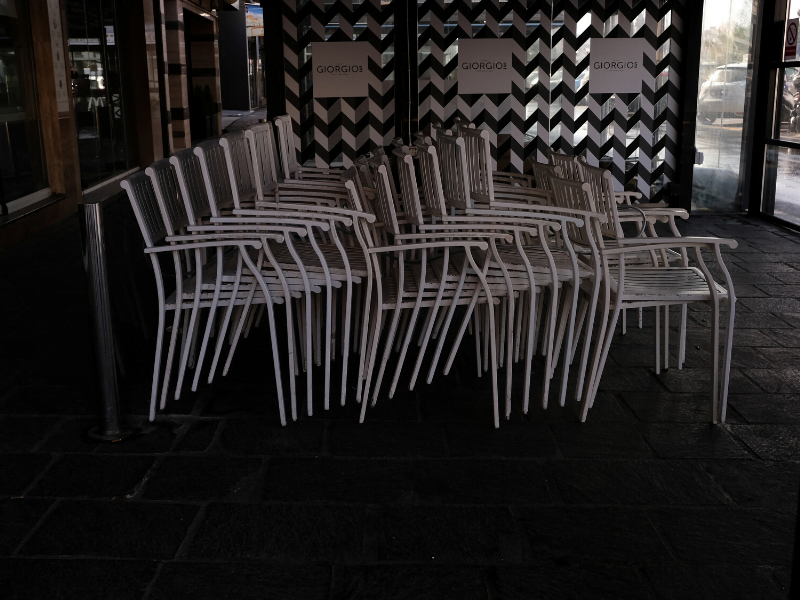While the third set of measures unveiled by the government has taken a load off the shoulders of small and medium-sized businesses, questions remain in some sector, the CEO of the Chamber of SMEs Abigail Mamo told The Shift.
The main questions being asked by local businesses revolve around a lack of clarity on the specifics of the measures and what actually applies to their sector or employment status.
On Tuesday, Prime Minister Robert Abela announced that all employed workers in critical industries (Annex A) will receive €800 from the government and an additional €400 from the company for which they work, while part timers will receive €500 from the government.
This package accounts for approximately 60,000 workers and includes sectors such as restaurants, hospitality, entertainment, retail, beauty, and so on.
Other industries that were impacted but did not stop working in light of COVID-19 (Annex B), such as the manufacturing, wholesale and repair industries, will receive €160 per month per employee.
Self-employed people are entitled to €800 per month, without any guaranteed additional payments from third parties although they are permitted to seek their own clients in addition to what they receive from the government. In case of those self-employed in Annex B, €320 per month will be provided. For individuals who are self-employed and employ staff, €480 will be given, while the employees will be given €320 each.
The Shift approached individuals to understand the impact of these measures on their businesses or their professions. A self-employed performing artist and singing teacher Annalise Cassar told The Shift that €800 could be low for someone already committed to expenses that exceed that amount, such as raising a family or paying back a loan.
“It should be dealt with on a case by case basis,” she said. But, at this stage, “any help is appreciated and better than nothing”. Postponing her shows due to the COVID-19 outbreak has created a massive set back for her as a freelance artist, she added.
“In my case, my work always slows down considerably in the summer months and therefore it is up until June where I usually take on as much work as I can, to make up for the summer months. Should the situation calm down halfway through the summer it will sadly be too late to recuperate all that has been lost throughout these months,” she said.
Cassar appealed to the public to support and motivate freelance artists in Malta at this time in any way they can “even by just sharing their posts on Facebook”.
More questions have been raised regarding the self-employed, with members of the public deeming the terms and conditions unclear. Mamo clarified to this website that a self-employed person is still able to take on jobs if they emerge, despite the guarantee from the government.
She also clarified that if someone is self-employed and their workers are also self-employed workers, then each self-employed person must apply for their guarantee individually.
That is the situation for Beauty Clinic owner Sue Caruana, who said her company “lost income overnight” when the pandemic hit. “I went from comfortable and without worries to nil in the bat of an eyelid,” she said.
Caruana expressed her concern that she will lose her newly-purchased apartment if she cannot work soon. She questioned whether when work does resume, will people even be able to afford their services.
While some sectors and industries are set in stone in the Annexes, others are more ambiguous. The owner of a small design firm told The Shift that the closure of shops last week had a direct impact on his business, while most companies, on which design and marketing firms are reliant, have not been paying for completed jobs. Such firms fall under Annex B and will be receiving €160 per month for each employee.
“This means that we are going to find it very hard to keep paying wages,” the owner said, adding that he believes that better financial support could be given to small businesses specifically.
“Hopefully, all these questions will be cleared in the coming days,” Mamo told The Shift, emphasising that businesses were in no way trying to abuse the incentives put in place by the government. On the contrary: “Now everything is a matter of survival.”
The owner of an eatery in the St Julian’s said she was deeply concerned about the survival of her business up until last Tuesday. The new measures have put her mind at rest. “My employees are safe for the time being, and other expenses have really diminished too. I think as a small restaurant we are really being looked after,” she said.
Caruana had the same optimism: “We will get up and start again when allowed. We have faced many problems before. This will be slightly different; however, we will rebuild once more.”












